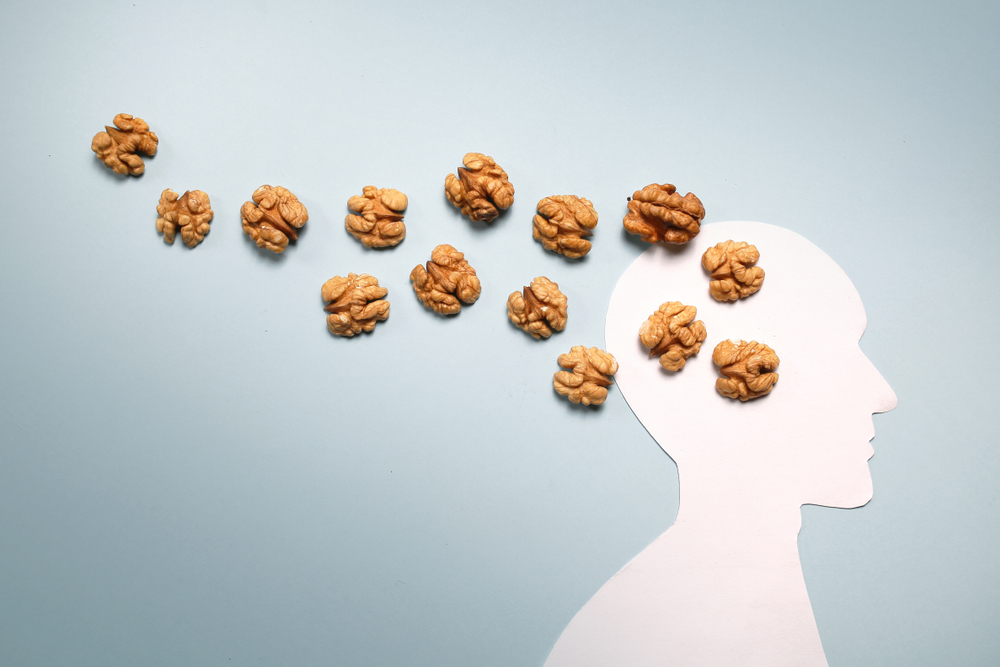Sugar’s negative impact on the body’s health is often discussed. But, I feel it is important to shed light on the rarer topic of how detrimental sugar is to our mental fitness, and how it affects our productivity at work.
Sugar consumption often is an emotional topic. It brings up feelings linked to compulsive cravings and eating, of being hopeless, having no control or having to fight like crazy in order not to give in.
Most clients come in acknowledging they eat too much sugar. Many actually report eating or drinking something sweet to regain energy and get a boost to keep going at work. They are usually very aware of the toll it takes on their body in terms of weight and physical health.
But these professionals usually don’t realize is the equally harmful impact of sugar on their brain’s health, their mental faculties and their productivity.
The brain’s critical relationship with sugar
Did you know that of all the organs in your body, your brain is the largest consumer of glucose?
Even though the brain weighs only 2% of our total body weight, it uses about 2/3 of the glucose a normal weight adult should consume in a day: 200g. So the brain utilizes roughly 130g of glucose daily, or about 450 calories.
Our brain holds about 86 billion neurons and 85 billion non-neuronal cells that require a lot of energy to ensure proper mental functions.
Unlike other organs like muscles, liver and heart, which can use other sources of energy, the brain must ensure its survival and performance almost solely on glucose.
Since the brain does not have any way to actually store energy, glucose must be consistently and constantly supplied to our neurons by our bloodstream throughout the day
The brain is actually hardwired for survival to monitor its glucose supply and to ensure it has priority on glucose availability over all other organs. How did this come to be?
Our ancestors, the hunter gatherers, did not have supermarkets at every corner, nor did they have the ability to order online groceries or meals that were delivered in the next 30 mins.
Science has shown that because finding food was unpredictable and famine was part of human life, our bodies are hardwired to store fat when there is too much food to prepare for bad days. That’s one “physical insurance”.
But because glucose is so important to the brain, an evolutionary mechanism ensures glucose consumption is stimulated.
Brain impact # 1 – Constant craving and obsessing over sugar
The evolutionary process of our body storing sugar as fat is a first way to ensure glucose supply. In addition, the reward system in our brain, is also hardwired to secrete the chemical “dopamine” when sugar is eaten.
Dopamine signals pleasure and happiness. Any trigger that prompts the release of high levels of dopamine reinforces in the brain the feeling that this trigger is beneficial.
And Science is showing that our brain’s reward system is particularly sensitive and is subject to huge surge of dopamine with certain triggers, such as sex, heroin, cocaine and … sugar.
Sugar will cause a surge in blood sugar while also activating the reward response in the brain and the secretion of a flood of dopamine.
So, cravings are intensified in two ways:
- When sugar is ingested, its high glycemic index provokes a sudden spike in blood sugar. Since it contains no fiber to slow its digestion, glucose is transferred in the bloodstream very fast. So very soon, about an hour later, blood sugar starts crashing. So you feel hunger again as you need more glucose to stabilize blood sugar.
- At the same time, the surge in dopamine in the brain reward center reinforces the usefulness of sugar. So your brain make you want to eat more sugar to get that feeling again.
This is how the vicious cycle of sugar addiction happens. And I will now show you how, what used to be a matter of survival when food was scarce, is setting up modern humans for addiction.
How the modern industrial food system bolsters your sugar addiction
In our modern world, sugar is literally everywhere. And, unless you are educated on the matter, you are often tricked into thinking you are eating healthy foods.
Yes, there are the obvious sources you can find in abundance: the ice cream place, the pastry shop, the sugar some add to their coffee and so on.
But sugar is actually largely invisible. There is a reason for that. Industrial food manufacturers and their laboratories have completely understood the brain’s addiction caused by sugar. And they want you to buy more of their food.
So they add and hide the “sweet kryptonite”, in large amounts, in every processed food. You name it: cakes, yogurts, beverages and even savory dishes. Most times, they use the most unhealthy refined and concentrated forms of sugar that come under a whole array of names.

You would not even know there is sugar when you read the labels if you don’t check out the sugar content. And don’t be fooled either by so-called healthy processed foods and check their content. I give a handout to my clients that has over 100 names for sugar!
→ So here is the first harmful impact of sugar on your brain: When you feel you “have sugar on your brain” constantly. You are actually dealing with a perfect storm of your body’s physiological reaction being reinforced by the reward area of your brain, and… modern food systems.
Besides sugar addiction and obsession, there are other negative consequences on our brain mental functions and productivity at work.
Brain impact # 2 – Sugar and energy fluctuation through the workday
Do you turn to sugary foods and beverages to boost your energy at work when you start feeling tired?
During my early corporate years in New York City, my eating habits were very different. And, I now realize how dependent on sugar I was. I remember clearly what would happen at the first sign of fatigue and lack of energy, as I started yawning.
It was a daily ritual for myself and my colleagues to get our sugar fix! We would make frequent trips to the building’s “convenience store” for coffee with sugar or some sweets: Muffins, M&Ms, snickers, mars etc.
Needless to say, I have changed the way I feed my body and brain quite radically since those days. I can never say it enough. Eating a sugar-laden breakfast – or no breakfast! – will make you tired by mid-morning and the quality of your work will suffer.
Yes, eating sugar does create a rapid spike of energy as a result of the sudden rises in blood sugar and dopamine. In that sense, sugar is a pick-me-up. But as much as your energy will increase fast, it will also, much sooner than with any other food, be followed by a crash.
And the direct consequence of this rapid fall in blood sugar is that you will feel tired and unfocused. Not a great way to ensure creativity and productivity at work. Some people are so sensitive to sugar, that dip will cause hypoglycemia and truly make them feel ill until they eat again.
→ The energy drops caused by blood sugar yoyos are another way sugar negatively impacts your performance at work.
Brain impact # 3 – Sugar and mood disorders
High sugar consumption doesn’t just sap your energy, it will also affect your mood.
Researchers have long studied sugar’s inflammation effects on the body. They are now looking closer at the correlation between sugar’s inflammation of the brain and mood deterioration, notably sadness and depression.
Additionally, the roller-coaster of energy peaks and lows the brain endures as a result of wide blood sugar variations, and the high inflammation could result in mood to deteriorate over time.
The Whitehall II study in the UK examined, among other things, the link between dietary consumption and mood found higher incidence of depression in people who had a higher sugar consumption.

Moreover, an elevated consumption of sugar over-solicits dopamine secretion in the reward area of the brain and alters its pathways. The deregulation of the neurotransmitter dopamine is related to depression.
On the other end of the spectrum, we know that when blood sugar levels suddenly dip and energy is low, as in hypoglycemia, people become irritable and anxious.
So, an unstable blood sugar causes mood disorders. At minima, it will be sadness, irritbality, anxiety, and in the long-term, it could lead to depression.
→ The 3rd harmful impact of sugar on the brain is mood deterioration. In a social situation such as work, well-being, quality of work and concentration will suffer. But it will also affect relations and collaboration, which are important factors of productivity.
Brain impact # 4 – Sugar diminishes cognitive functions
There is no shortage of research about the impact of sugar on intellectual faculties.
In 2016, a study was published in “Behavioral Brain Research” by Beilharz, Maniam and Morris. It showed that sugar not only causes hyperglycemia, but also inflammation in the hippocampus, resulting in memory deficits.
Moreover, frequent high sugar consumption and elevated blood sugar are also associated with damage to the blood vessels, including those of the brain, and with diminution of mental capacity.
Studies have shown that long-term diabetics, with time, will suffer from deterioration to the brain that leads to decrease in motor speed and deficits that touch memory, learning and other cognitive function.
And don’t think you are safe because you are not a diabetic. High sugar consumption negatively impacts cognitive function tests’ scores and the ability to perform demanding tasks.
Other studies highlight sugar’s correlation not only to memory loss but also to reduced brain size. We are speaking about strong precursors to Alzheimer’s and other degenerative cognitive disease, like dementia.
→ Therefore, the 4th harmful effect of high sugar consumption on the brain is the deterioration of intellectual faculties, such memory and your ability to perform mental tasks that are more complex. Both being critical to any professional and any leader at work.
How to improve your brain performance at work from a nutrition standpoint

Clearly, sugar is not just detrimental to your physical health. Sugar is also harmful to your brain, your performance at work and its healthy aging.
The good news is that you hold important keys to turn the tide around. There are many delicious foods and lifestyle habits that are supportive of brain health and that will help you improve how you feel in general.
For any individual who is looking to increase their mental fitness and their productivity at work, I would recommend to start with the following in terms of nutrition:
- Your overall aim should be to stabilize your blood glucose and to keep inflammation low.
- Start curbing your consumption of sugar to break your reliance on it to replenish your energy. Cut out refined sugars, as well as processed foods and drinks with added sugars.
- Replace sugar with antioxidants foods and superfoods that support brain’s activities and ward off inflammation
- If you want to have energy and peak performance at work throughout the day, be sure to eat healthy meals at regular intervals.
Learning to take care of yourself is lifelong empowerment. I do create personalized 1-on-1 sugar detox programs. And if you are looking for excellent body and brain health self-care, my Healthy work Warriors coaching program may be right for you.
I encourage you to take advantage of the free session I offer – below – to assess your needs and goals, and find out how I can help you transform the way you feel!
Wishing you a Happy Healthy Long Life!
Cassis
Do you want to find out if my personal coaching programs are right for you?
- https://www.cdc.gov/nchs/fastats/obesity-overweight.htm
- https://wellnessretreatrecovery.com/sugar-and-dopamine-link-sweets-addiction/
- https://www.verywellmind.com/how-sugar-affects-the-brain-4065218
- https://www.ncbi.nlm.nih.gov/pmc/articles/PMC3900881/
- https://pubmed.ncbi.nlm.nih.gov/26970578/
- https://www.eufic.org/en/whats-in-food/article/glucose-and-mental-performance
- Reis DJ, Ilardi SS, Namekata MS, Wing EK, Fowler CH. The depressogenic potential of added dietary sugars. Med Hypotheses. 2019;134:109421.




